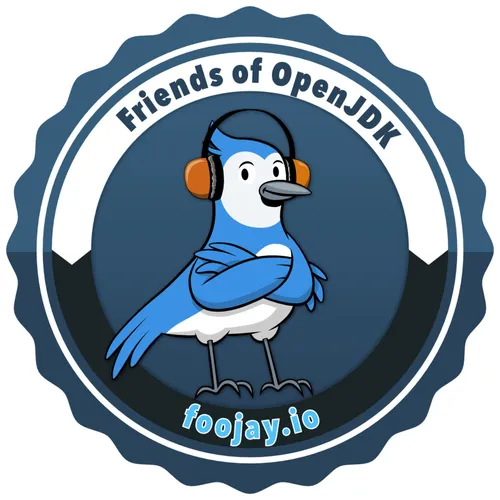
Foojay.io, the Friends Of OpenJDK!
The podcast of foojay.io, a central resource for the Java community’s daily information needs, a place for friends of OpenJDK, and a community platform for the Java ecosystem — bringing together and helping Java professionals everywhere.
- Update frequency
- every 11 days
- Average duration
- 49 minutes
- Episodes
- 76
- Years Active
- 2021 - 2025
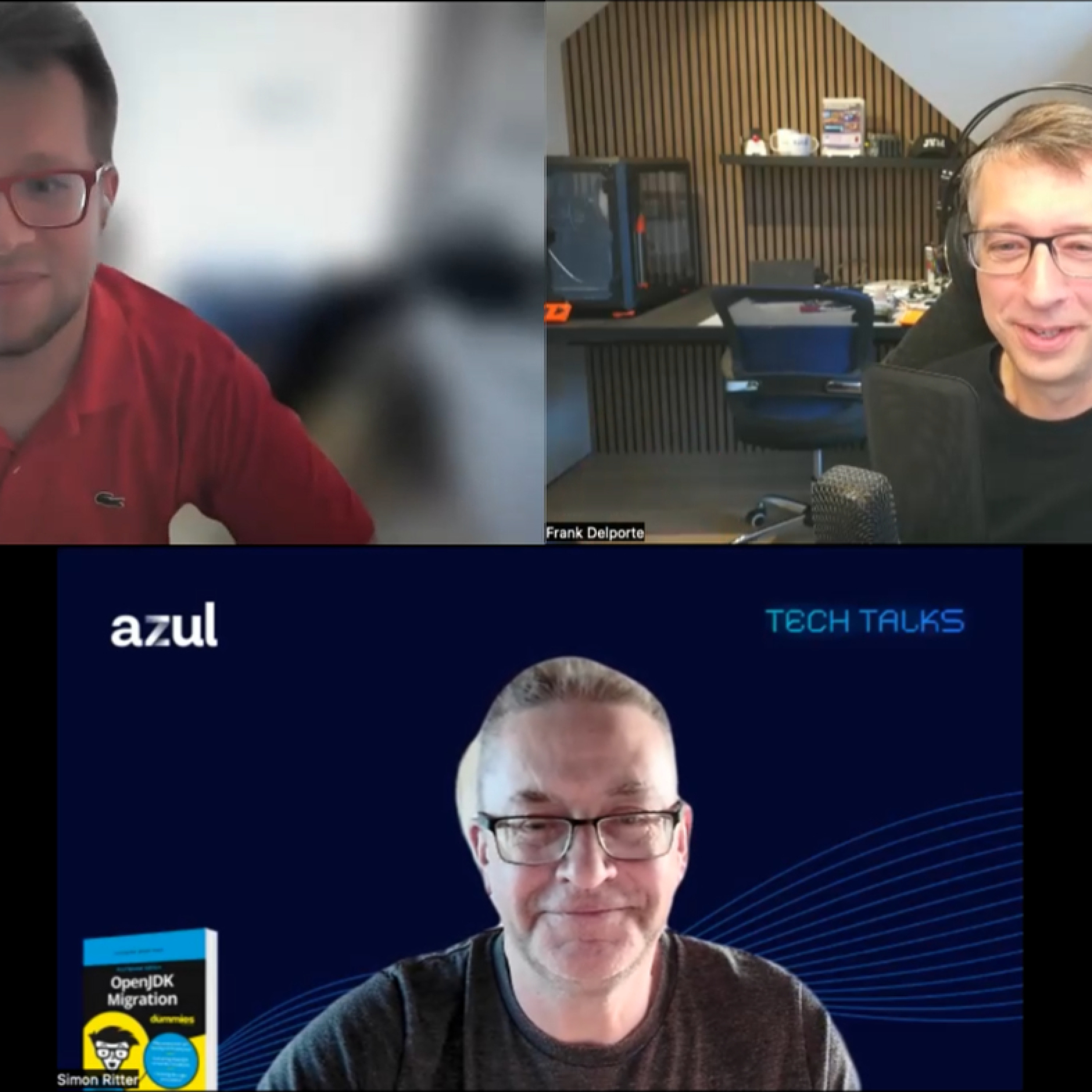
Welcome to OpenJDK (Java) 23 (#57)
OpenJDK (Java) 23 is here! This version introduces three new features to the language and runtime, many bug fixes, small improvements, and a longer list of preview features. What are the most importa…
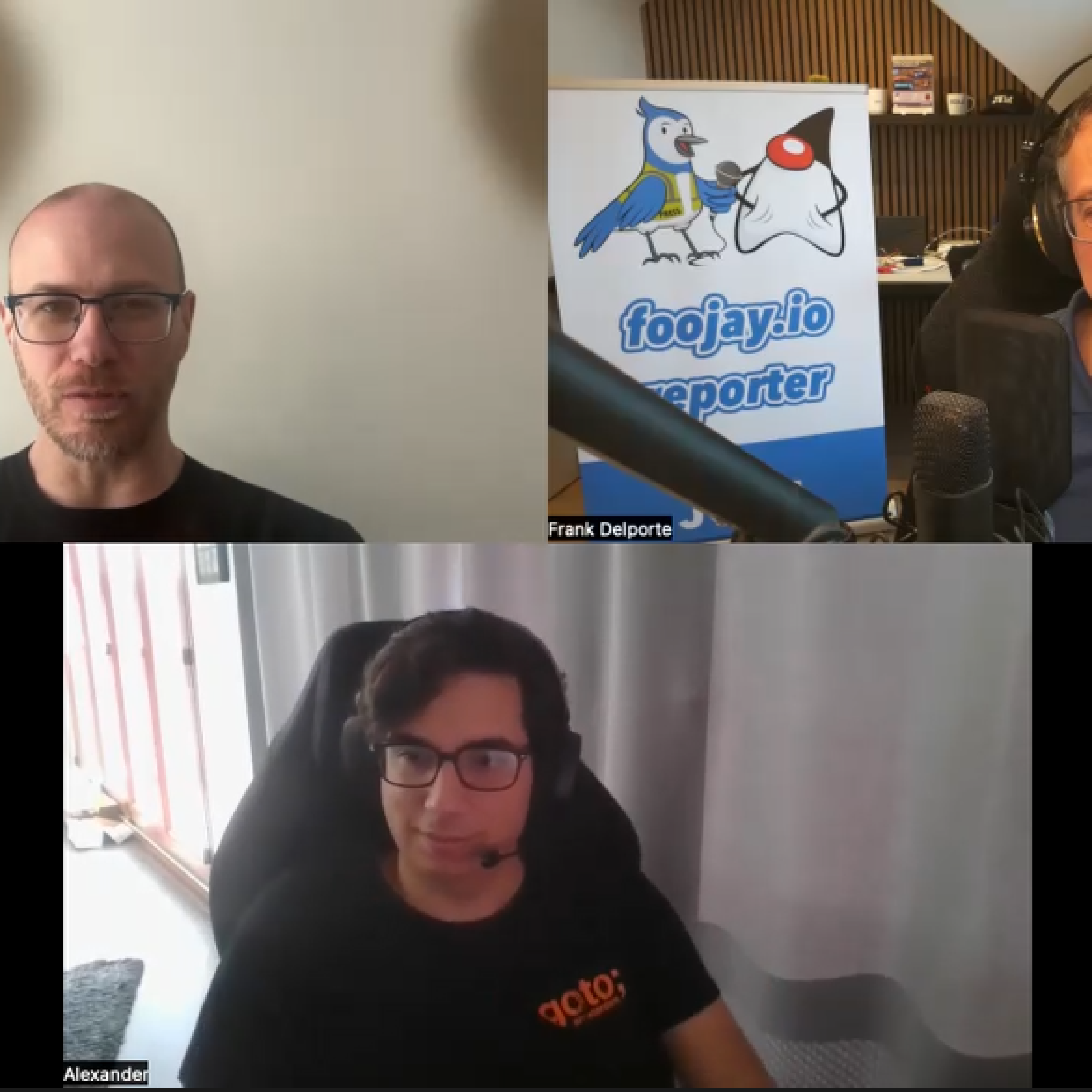
Vectors in Java Code, Database, and LLMs (#56)
In this Foojay podcast, we enter the world of mathematics by discussing Vectors and how they are crucial for AI and machine learning. As ChatGPT explains: "A Vector is a mathematical structure that h…
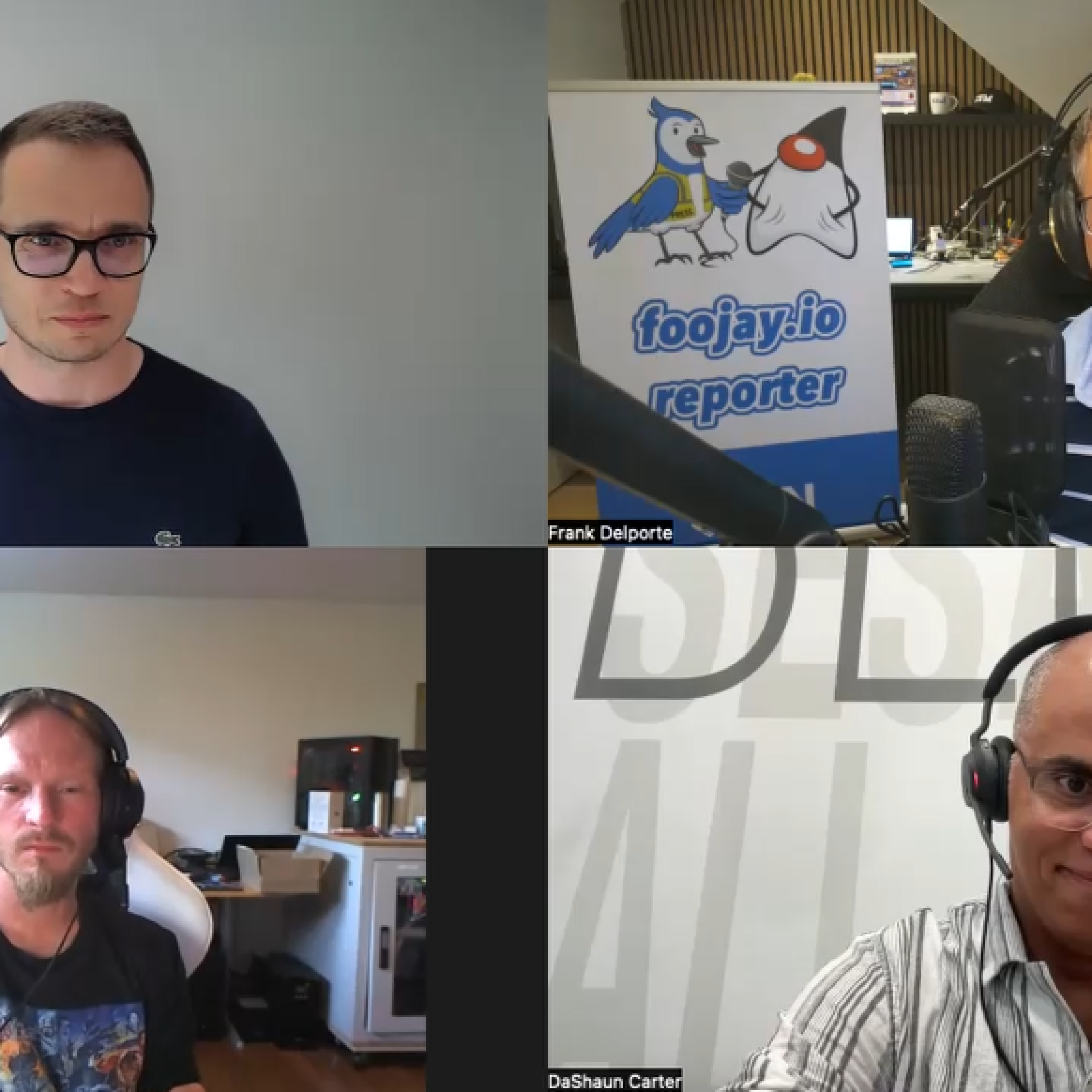
Embedded Java, Part 2 (#55)
As a backend developer, you may not realize that Java was initially born on embedded devices like set-top boxes and gateways. We discussed this topic for the first time almost three years ago in Fooj…
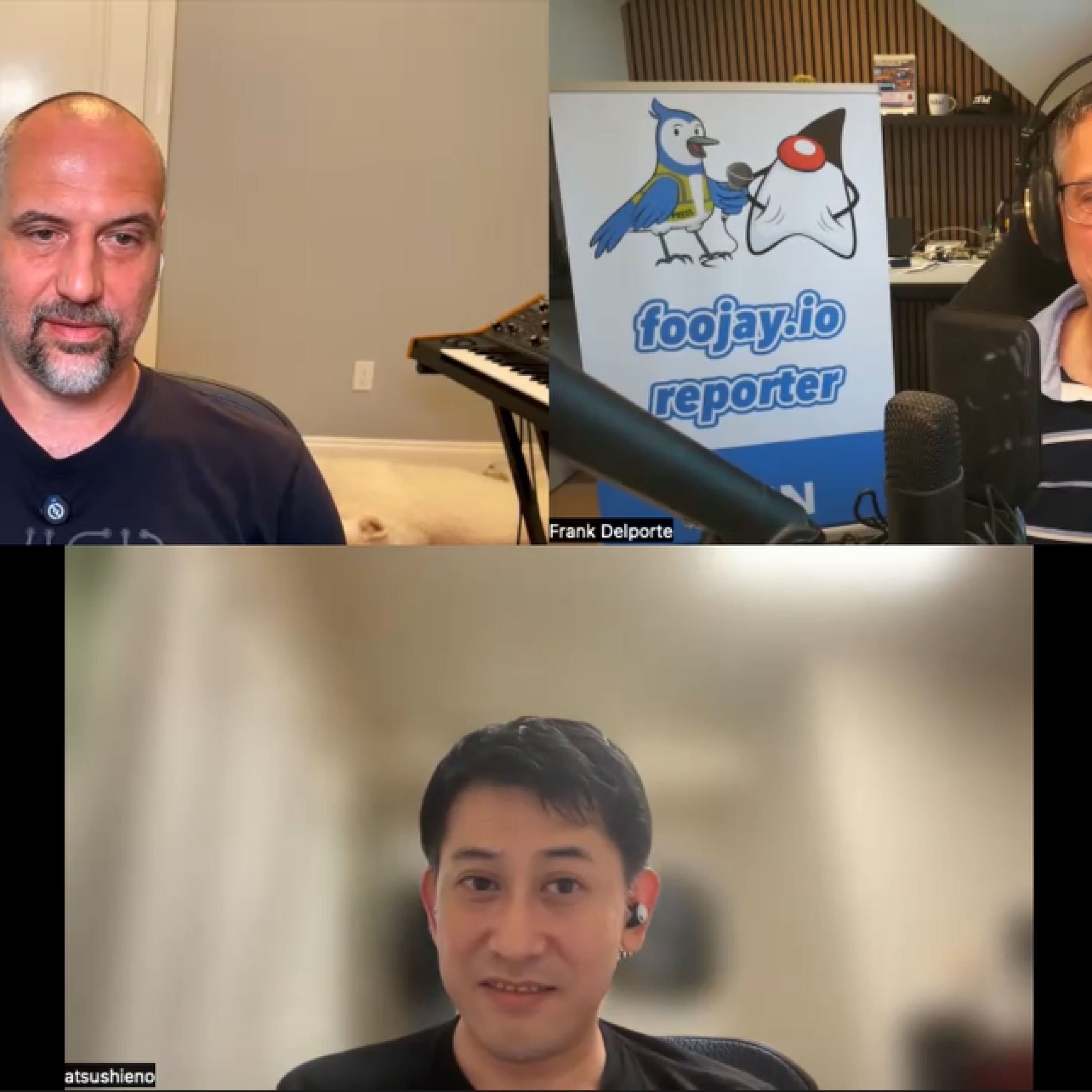
Music and MIDI with Java and Kotlin (#54)
MIDI is a universal standard for communicating between musical instruments and computers. Within OpenJDK, there is a whole Java package dedicated to MIDI communication and data handling. Is it up to …
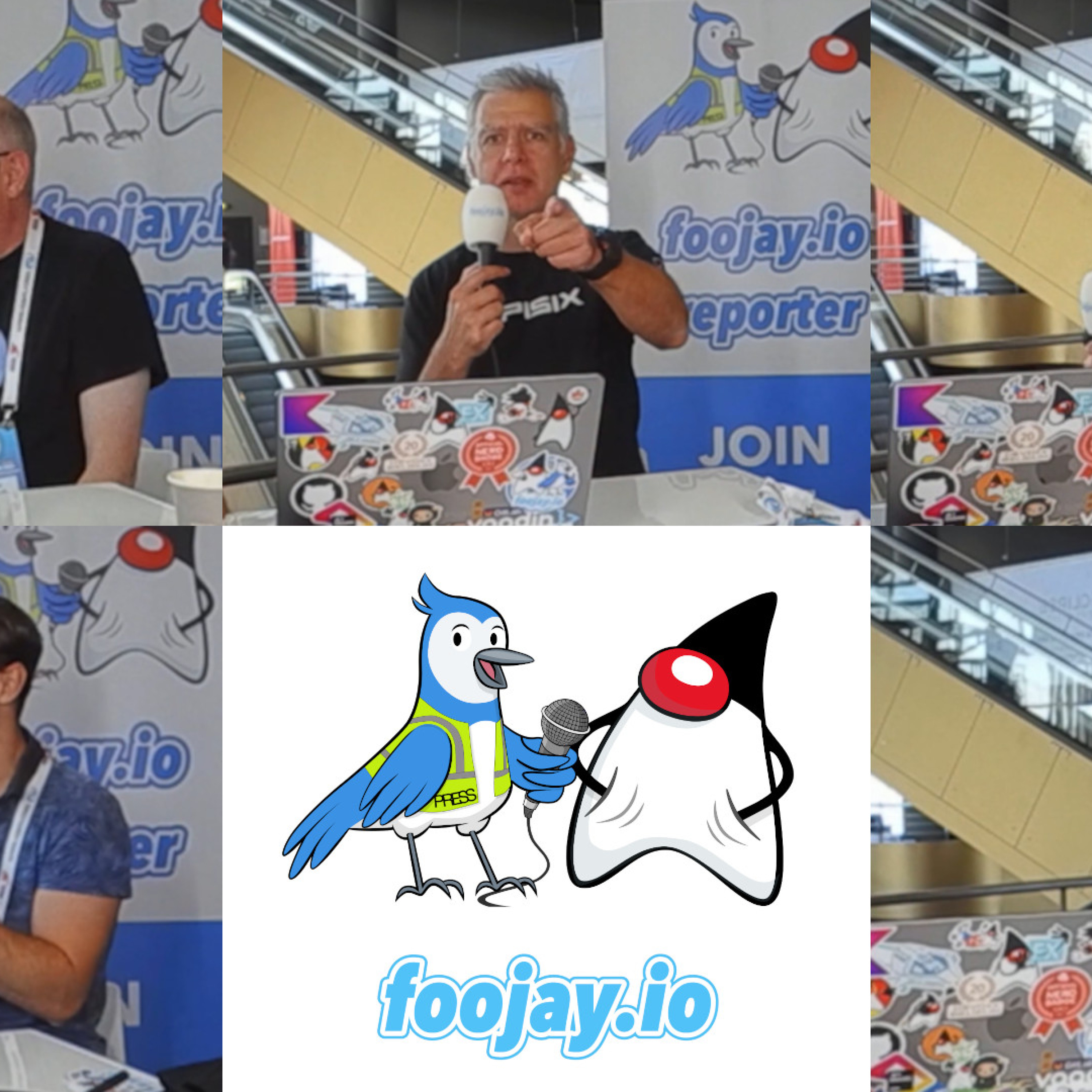
JCON Report, Part 5 (#53): CQRS, JOOQ, GraphQL, API, Vaadin, OpenRewrite, ErrorProne, Gateways,...
This is the final part of the JCON interviews. Did I save the best for last? It's up to you to decide. In this episode, you'll hear Simon Martinelli, Nicolas Fränkel, Marcus Hellberg, Rick Ossendrijv…
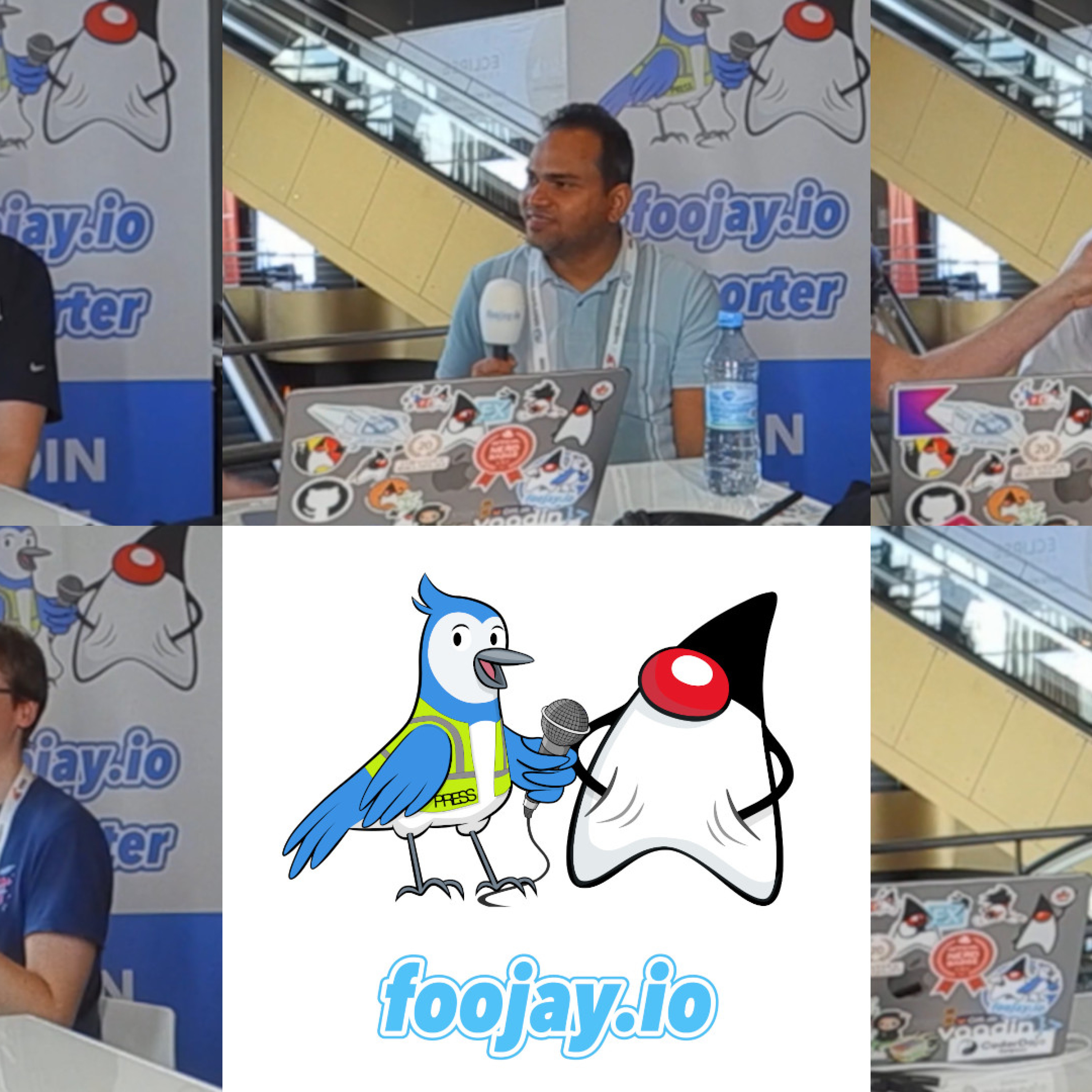
JCON Report, Part 4 (#52): Garbage Collectors, Test Containers, Flaky Tests, ToxiProxy, Virtual Threads
This is part 4 of the JCON interviews. In this episode, we have 5 new guests for you. We start with garbage collectors and Intelligence Cloud, a tool created by Azul to find out which of your code is…
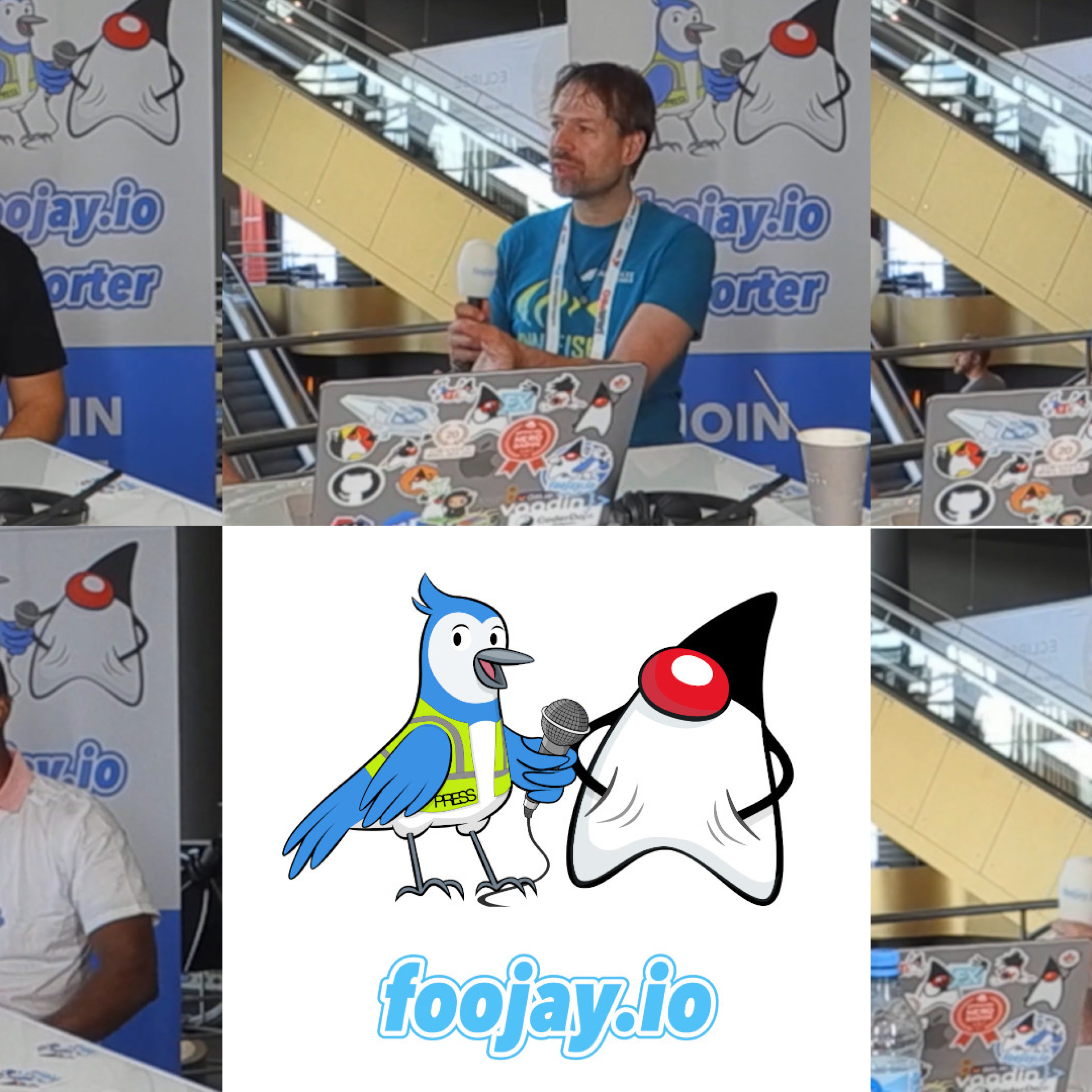
JCON Report, Part 3 (#51) - Persistence, Jakarta EE, GlassFish, Messaging via Telegram
This is part 3 of the JCON interviews. In this episode, Frank meets Otavio Santana, who recently wrote the book "Mastering the Java Virtual Machine." At JCON, he talked about the persistence layer an…
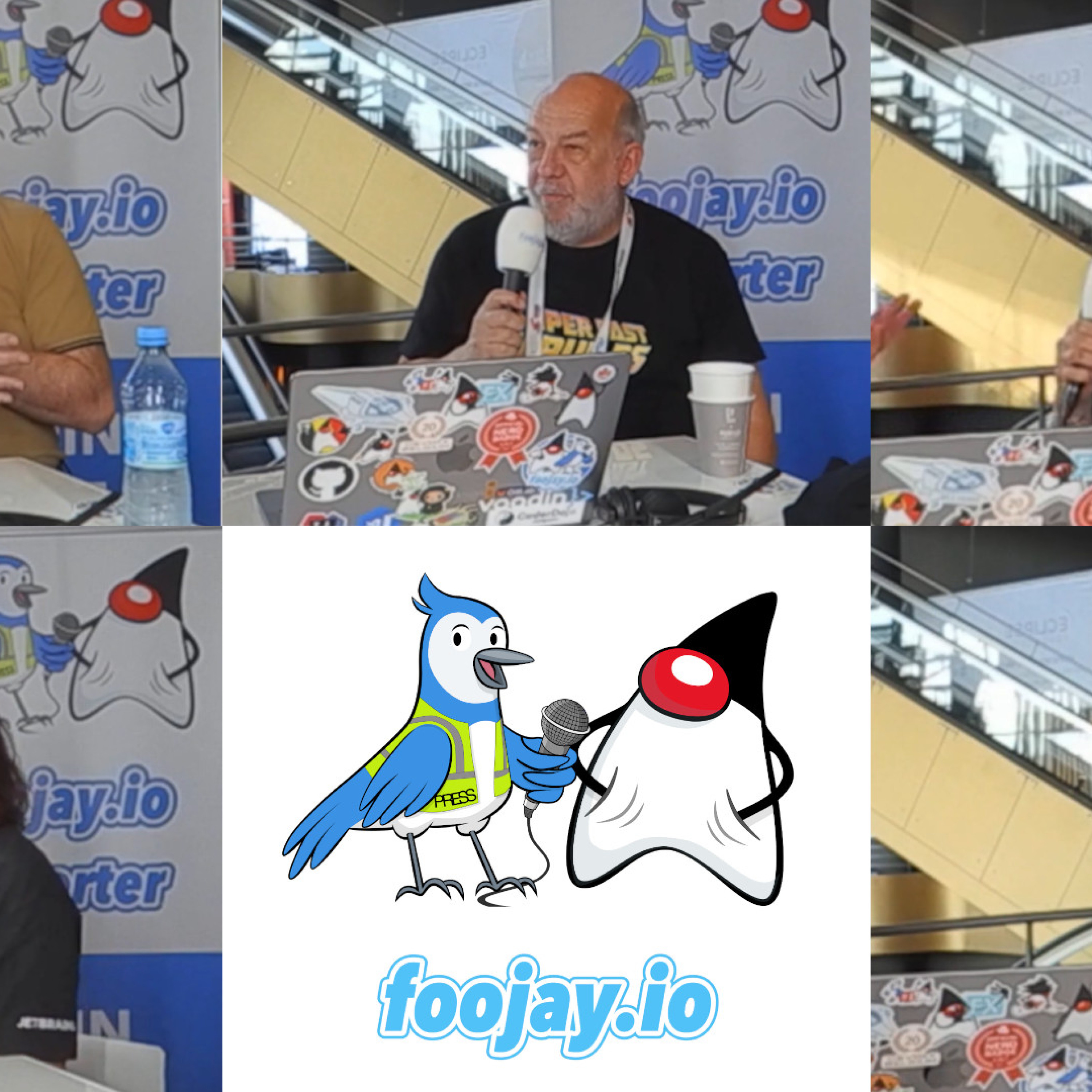
JCON Report, Part 2 (#50) - Maven, Software Security, Code Quality
This is part 2 of the interviews we recorded at the JCON conference earlier this month in Germany. In this episode you get two main topics: Maven and Code Quality. In the first part, you'll hear Karl…
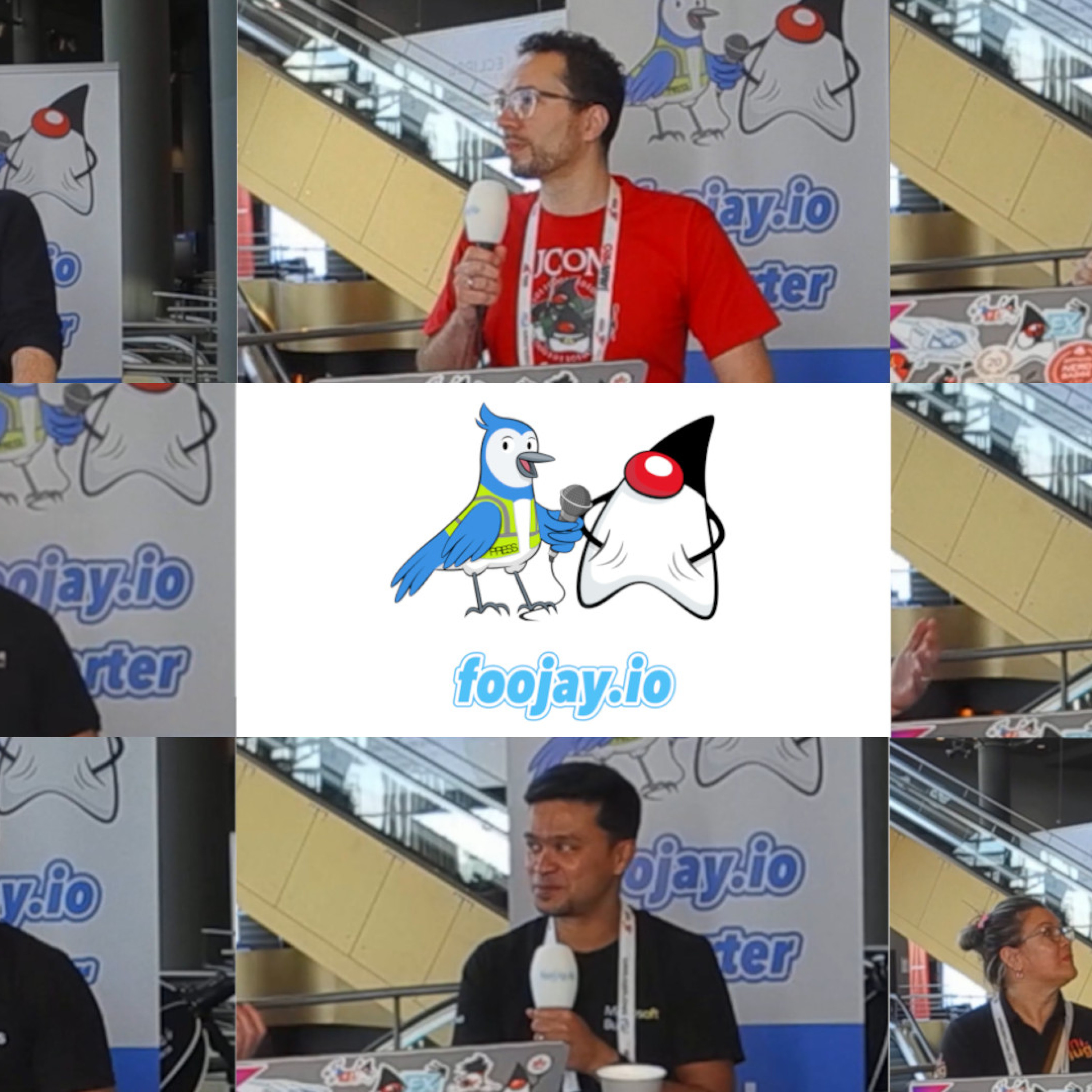
JCON Report, Part 1 (#49) - JUGs, Communities, Open Source, Generative AI, LangChain4j, Machine Learning
On Tuesday, May 14th, the Foojay Podcast went live at the JCON conference in Cologne, Germany, to talk with speakers and visitors about all things Java. We had so many amazing talks that we will comb…

JUG Oberpfalz, JCON Conference, and JAVAPRO Magazine (#48)
Once a month, in the Foojay Podcast, we discuss the history of a Java User Group and the people behind it. In this episode, we are in Oberpfalz, Germany, for a particular reason. The organizers of th…

Artificial Intelligence and Machine Learning with Java (#47)
About one and a half years ago, ChatGPT was launched. The way we search for information and develop software has changed a lot since then as the use of Artificial Intelligence suddenly became a lot e…
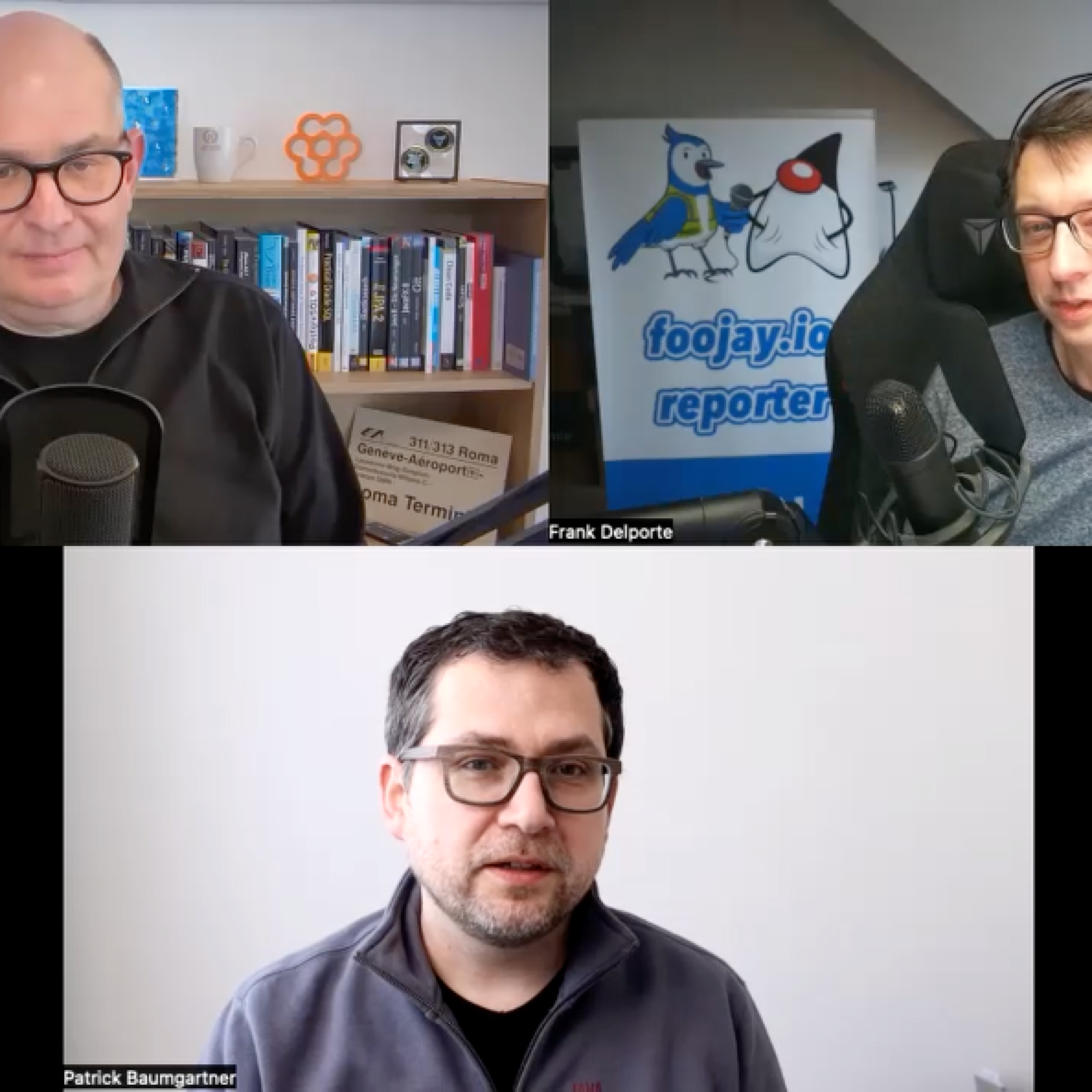
JUG World Tour: JUG Switzerland (#46)
In this podcast, once a month, we discuss the history of a Java User Group and the people behind it. In this episode, I'm leaving the European Union and stepping over the border of Switzerland, the c…
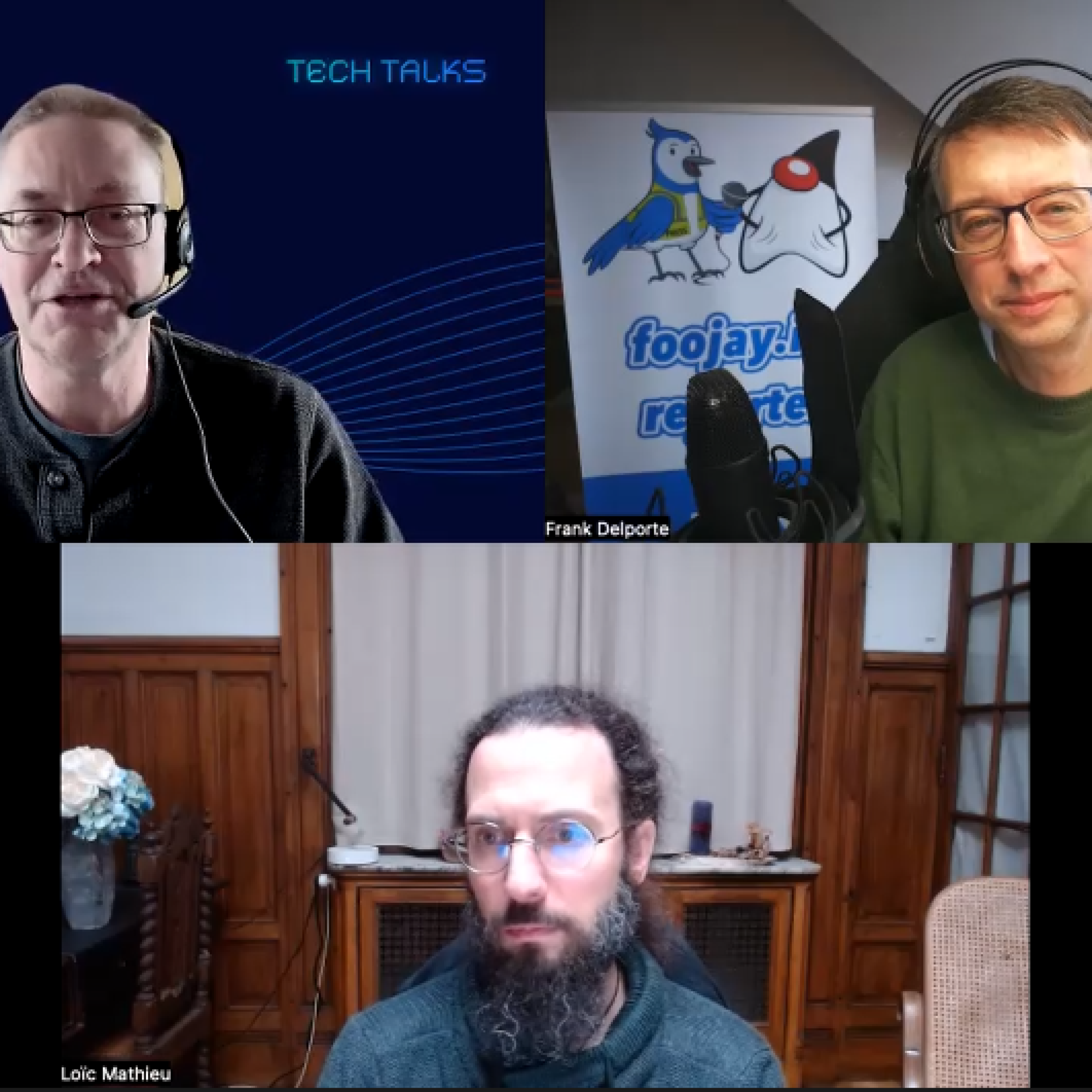
Welcome to Java 22 (#45)
Last September, we got Java 21, a Long Term Support (LTS) version with eight new big features and seven incubator or preview features. Does Java 22 also bring that much innovation, or is it just a bu…
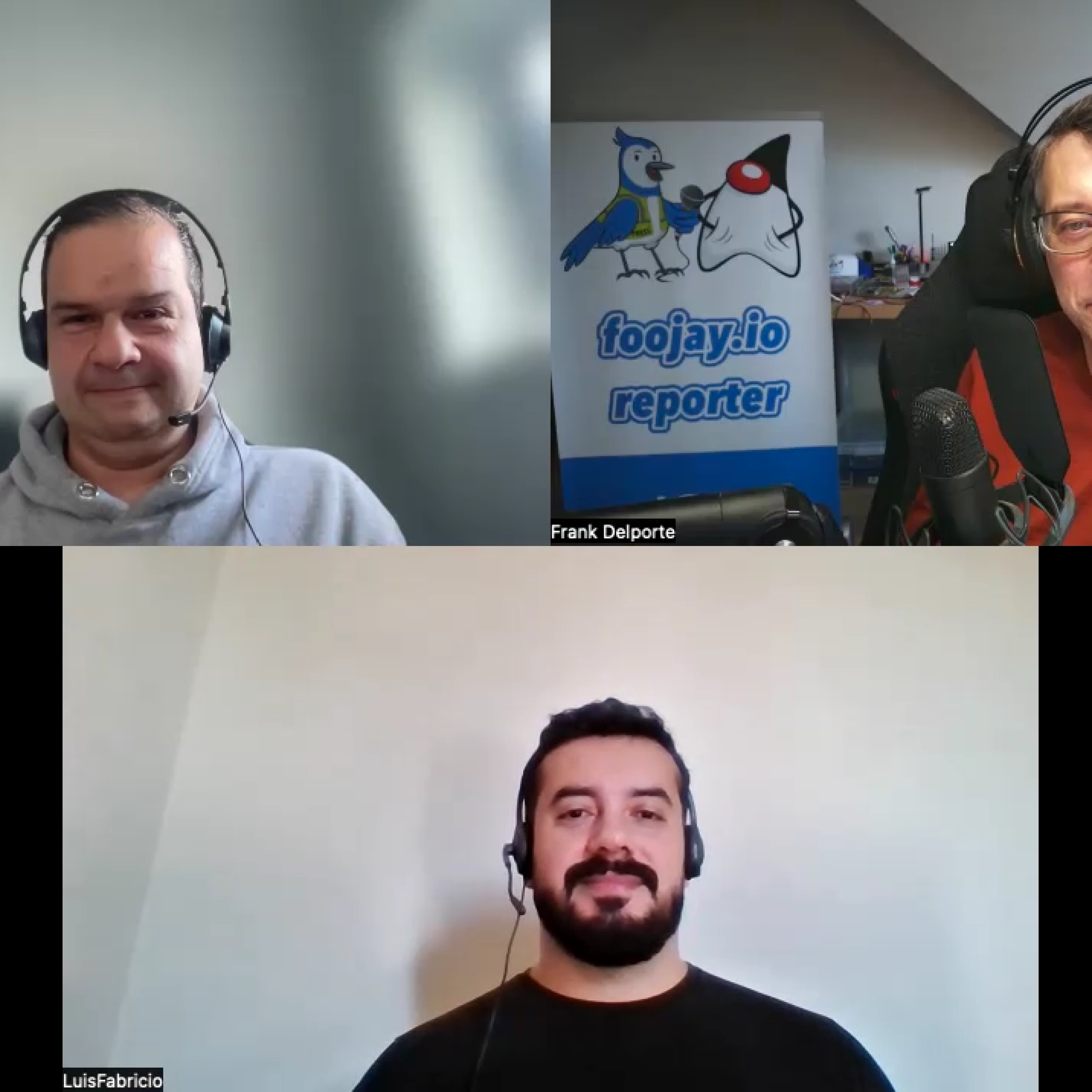
JUG World Tour: Quarkus Club (#44)
Once a month in this podcast, we talk about the history of a Java User Group and the people behind it. We have a special group in this episode as we visit the virtual Quarkus Club. This initiative st…
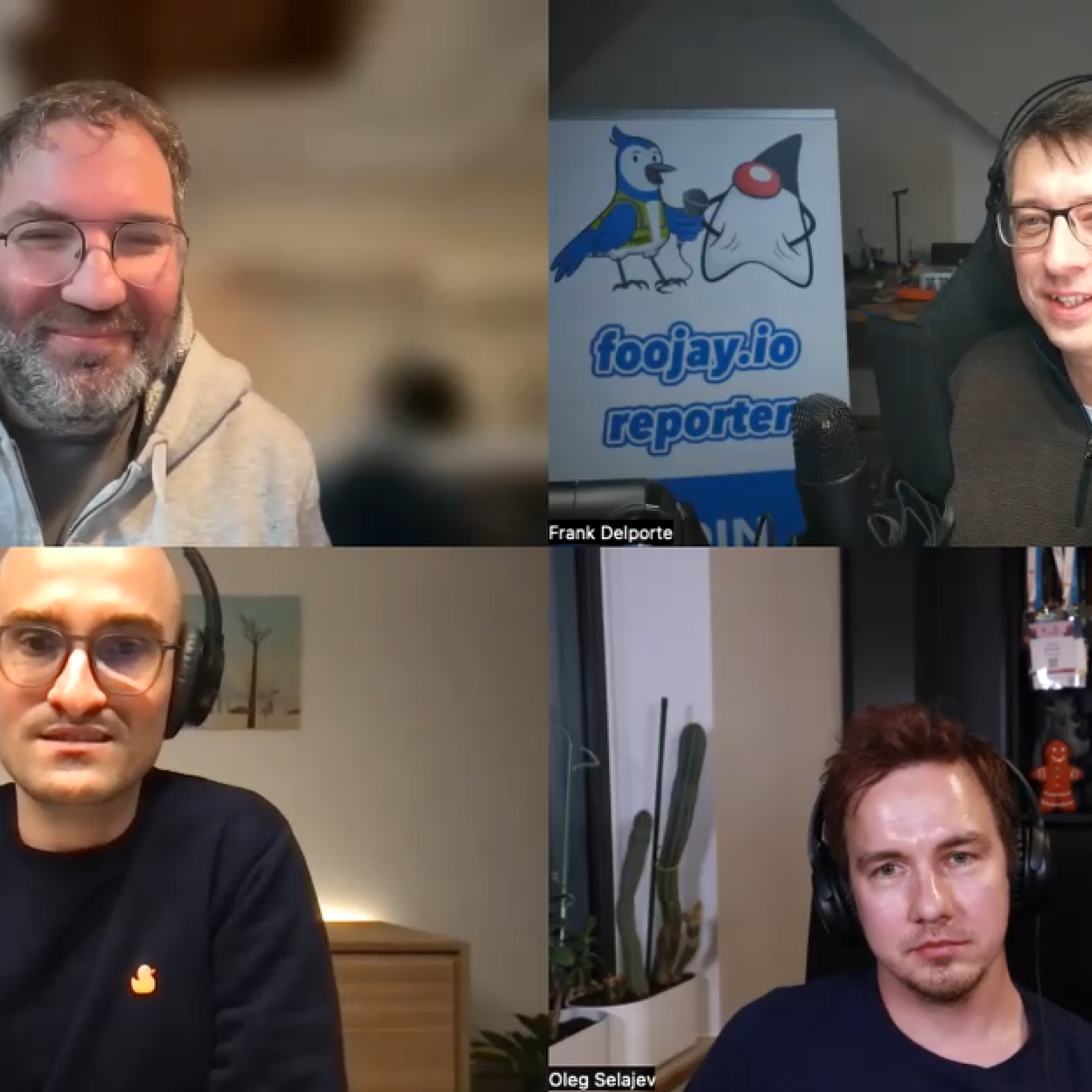
Modern Java Testing (#43)
As a developer we all want to write bug free and high quality code. Writing tests is a crucial part to achieve this. Let’s explore the art of ensuring robust and bug-free code in the Java ecosystem. …
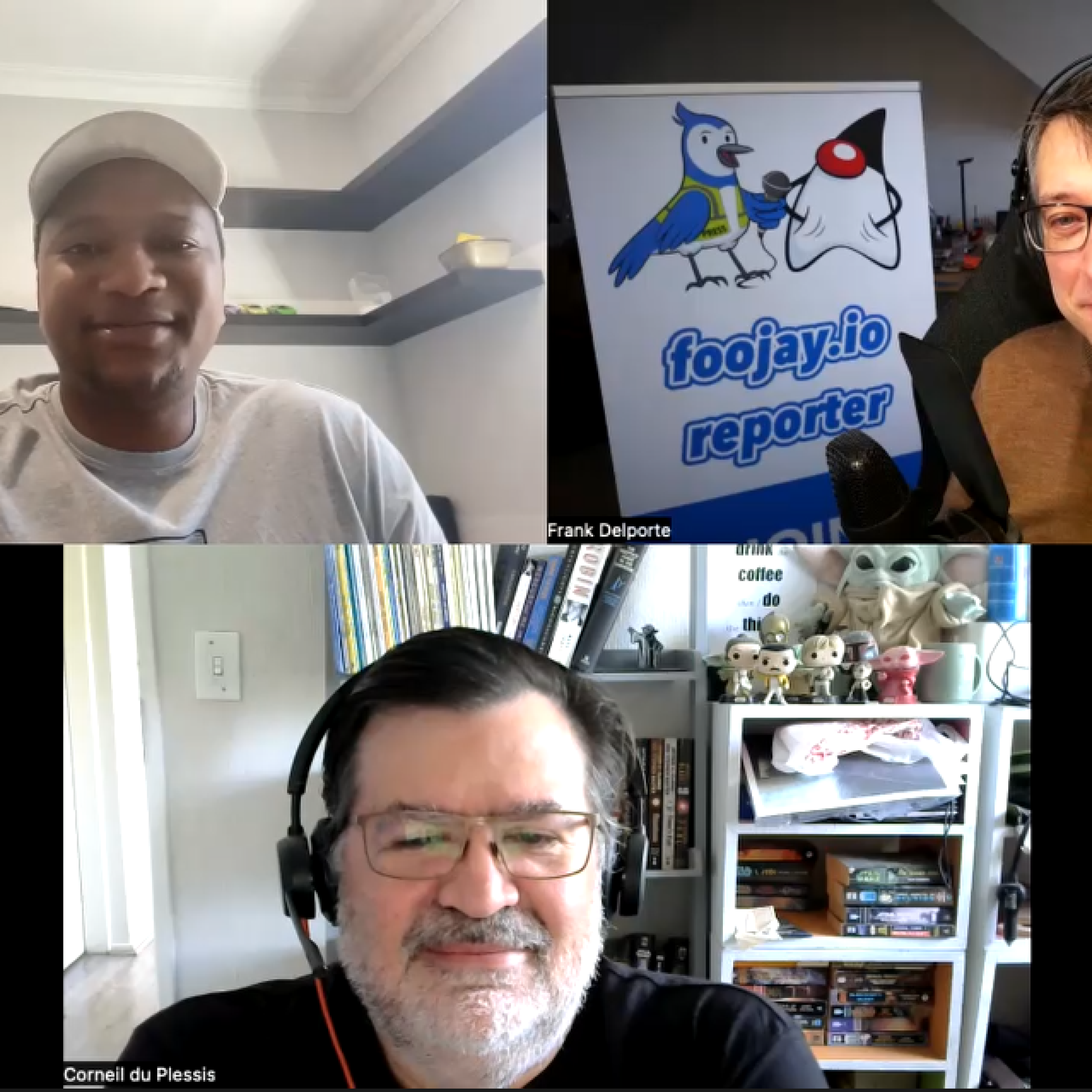
JUG World Tour: Jozi-JUG and Cape Town Java Community (#42)
Once a month in this podcast, we talk about the history of a Java User Group and the people behind it. Today, we are traveling to Cape Town and Johannesburg to learn more about its Java communities.
J…

Web Development with Java (#41)
When starting to build a new website, you are facing a major challenge. Which framework should you use? Angular, React, Vue, Svelte? They are all based on JavaScript and can be the right choice depen…
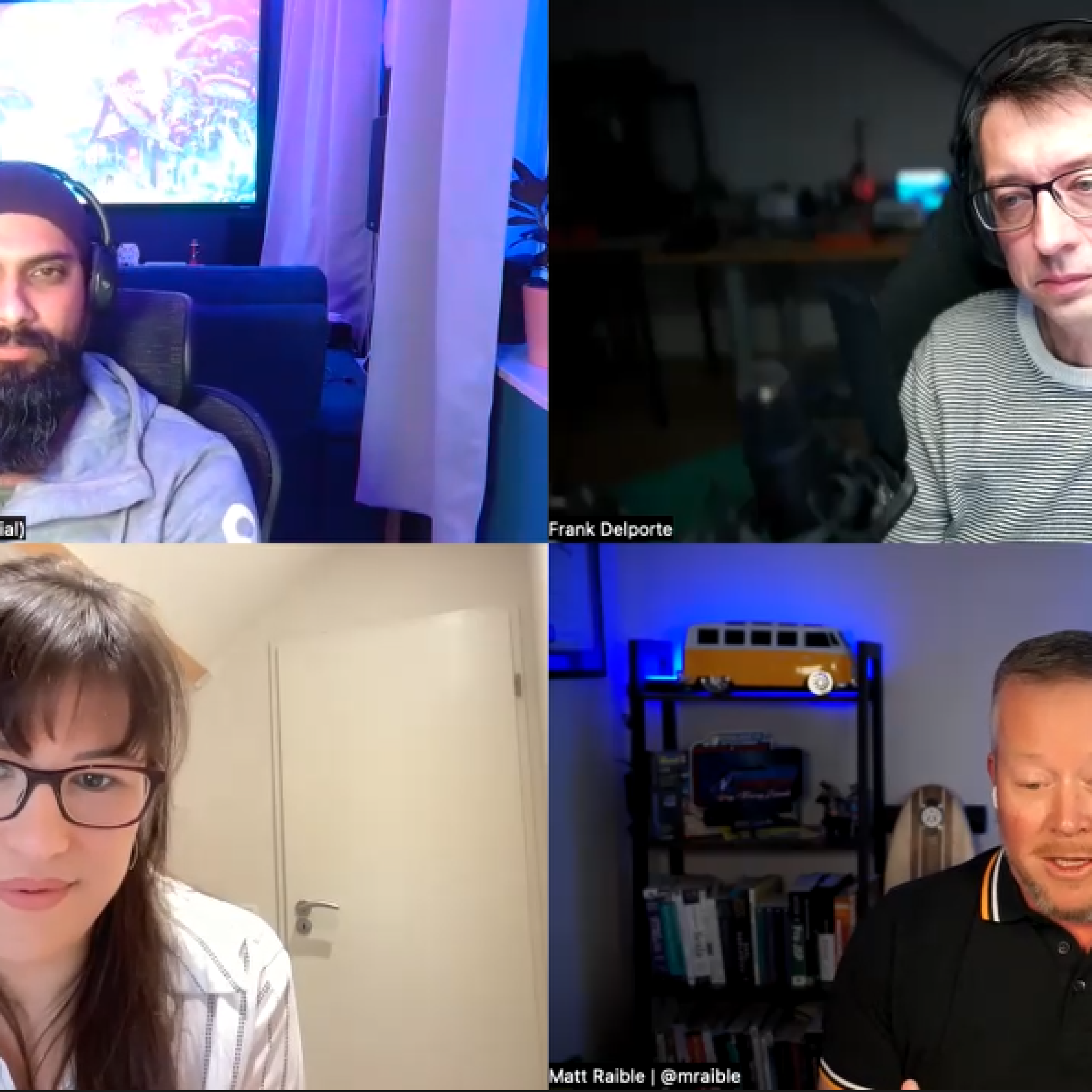
Making Java Attractive for Beginners in Programming (#40)
“Public static void main string array” are the first words everyone sees when they start their first Java Hello World experiments. Some teachers explain them, while others say you will understand eac…
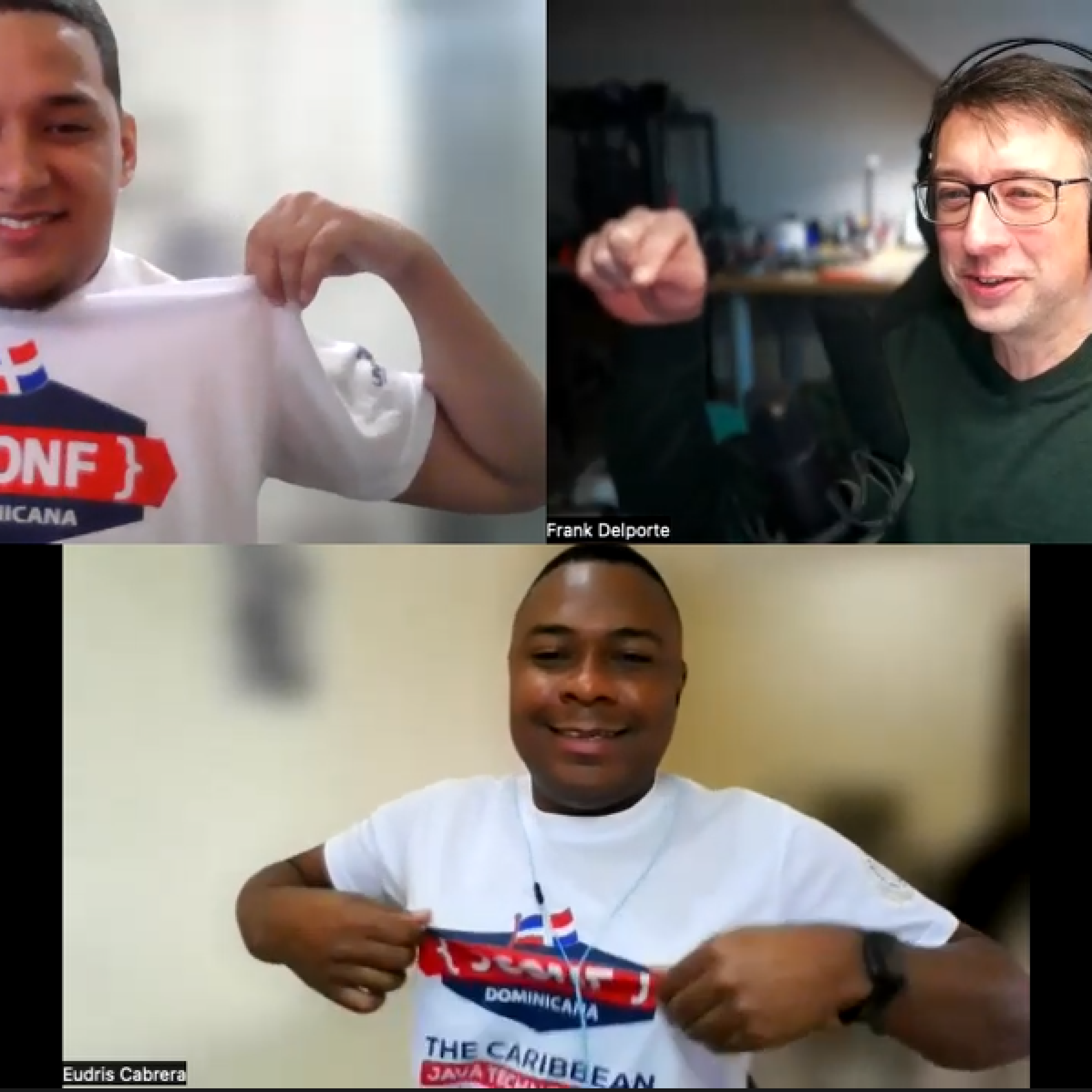
JUG World Tour: Java Dominicana (#39)
Once a month in this podcast, we talk about the history of a Java User Group and the people behind it. Today, we are traveling to the Dominican Republic to learn more about the country and its Java c…
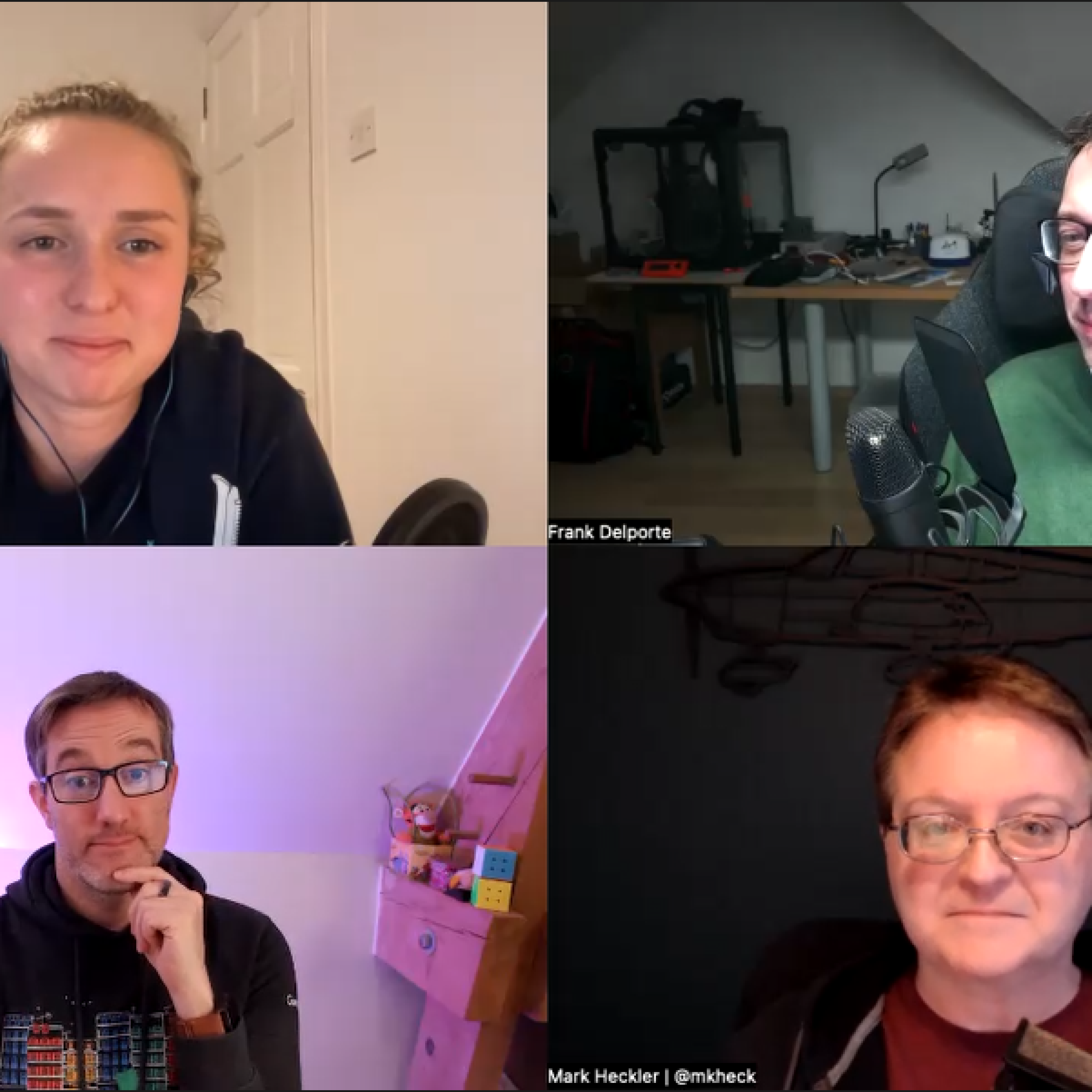
Java in the Cloud (#38)
Java was born in 1995, when the internet as we know it today, didn’t exist yet. Cloud servers, Docker, Kubernetes, distributed systems, scaling up and down,… These things are now part of our daily jo…